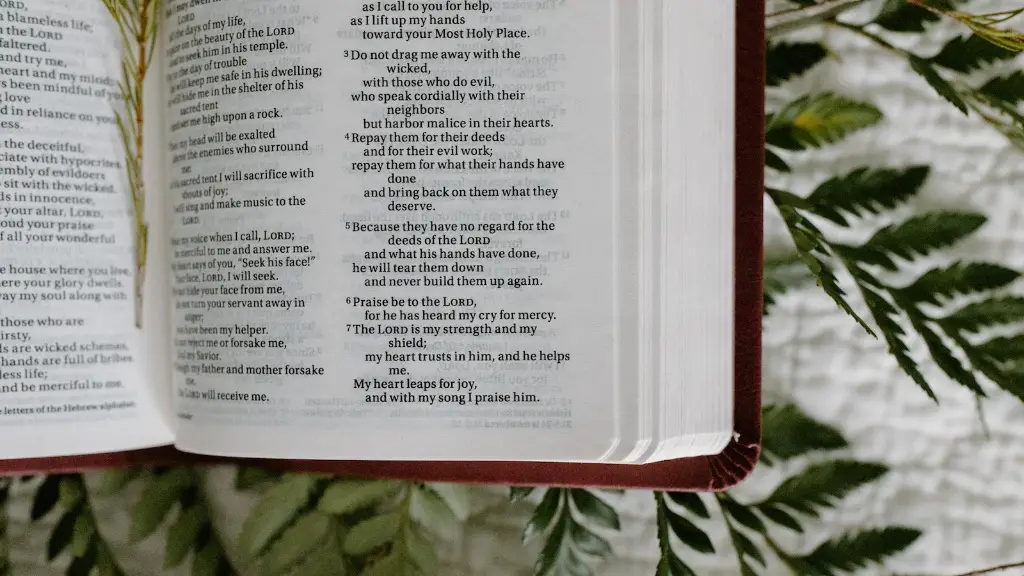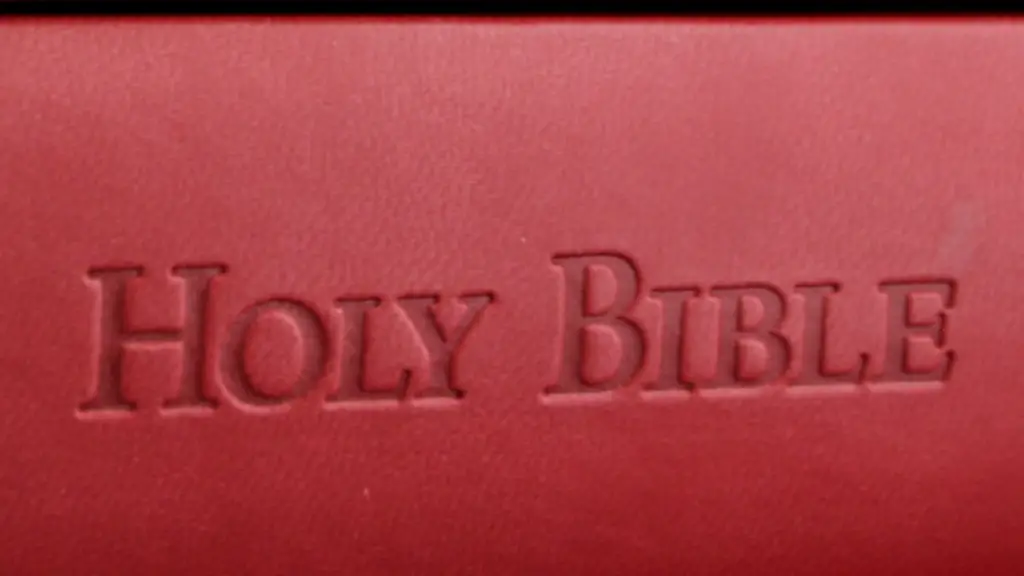The Book of Enoch is an ancient Jewish religious text, considered an apocryphal writing by some Christian denominations, mentioned in the Hebrew Bible, and traditionally attributed to Enoch, the great-grandfather of Noah. It is said to contain secrets of God and details about past generations which are not recorded in the Bible.
The text gained renewed interest when the Dead Sea Scrolls were discovered in 1947, as they contained fragments of several books of the Bible, including the Book of Enoch. The newly found text sparked debate over whether or not the book should be accepted as part of the Bible. Those who accept it argue that the book was treasured by Jews from the time of Jesus to the present day, and that its core message is in harmony with the Bible. Those who reject it point to the fact that the book was not included in any of the ancient rabbinical writings and was excluded from official Christian canons.
The book is divided into five sections, many of which contain vivid descriptions of angels, heavenly realms, and the corruption of humanity. While some passages can be seen as having spiritual relevance, others are more literal, leading many to believe that the book is talking about literal angelic beings. The book describes how Enoch was visited by angels, who opened his eyes and revealed mysteries beyond what his previous understanding of the Bible could provide.
The biggest problem with the Book of Enoch is that it is difficult to determine who, or what, wrote it and when. There is debate among scholars as to whether it was written by a single author, a group of authors, or a mix of both. Some argue that it was written in the first century BC, while others suggest it was written much earlier, and still others push the date back even further.
Despite all of the debate, the bottom line is that there is no hard evidence to definitively prove that the Book of Enoch is part of the Bible, or that it should be accepted as an authoritative part of Christian scripture. Nevertheless, it still retains a good amount of respect among many Christians for its potential to shed light on some of the hidden mysteries of the Bible. For this reason, many denominations have accepted the book’s teachings as part of their tradition and consider it an important part of their faith.
The Formation Of The Bible
The Bible was written over thousands of years, attributed to many authors, and accepted by many faith groups. The process of deciding which books should be included in the Bible was often a long and arduous one, as disagreements arose over which books were accepted as authoritative. This process became known as canonization.
One of the greatest debates in regard to the Bible is the inclusion of Enoch, as the process of canonization was set in motion by the early church fathers. Their primary goal was to guard and protect the canon of sacred writings that had been passed down through the centuries, while also allowing for new works that may also be included in the Bible. Due to this debate, the canonization process of the Bible was put on hold for many years, leaving the question of whether or not the Book of Enoch should be included in the Bible unanswered.
While the Book of Enoch was excluded from the Bible, it still has an important role in many religious texts and beliefs. In Judaism, it is held in high esteem, with many claims that it contains secrets of God and hidden knowledge about the universe. For Christians, the book has been used to help explain the themes and messages of the Bible. It has also been used to provide spiritual and practical advice on how to live a good, moral life. Finally, it has been used to defend traditional religious beliefs and values.
Implications Of Inclusion
The biggest problem with the inclusion of the Book of Enoch in the Bible is that it is impossible to determine who, or what, wrote it and when. Therefore, it is difficult to trust the text as an accurate source of information. Furthermore, different sections of the book are interpreted differently, leading to more confusion. For example, the sections that talk about heavenly realms and angels could be taken literally, or metaphorically.
Another issue is that the Book of Enoch contradicts with some sections of the Bible. This has led to much debate and disagreement among religious circles regarding which books should be included in the Bible. Ultimately, the decision on which books should be included in the Bible is up to the different faith groups. Some denominations may accept the Book of Enoch while others may not.
Ultimately, the Book of Enoch remains part of many religious traditions and is widely accepted by many Christians. However, the nuances in interpretation and the lack of historical evidence have meant that it is not included in the Bible. As such, it remains an important, but secondary source of religious knowledge and teachings.
Role Of Faith Groups
Different faith groups have different approaches to the inclusion of the Book of Enoch in the Bible. For example, the Ethiopian Orthodox Church has officially accepted the book as part of their Biblical canon. Other Christian denominations, such as the Coptic Orthodox Church and some Anglican churches, have also accepted the Book of Enoch as part of their Bible. By contrast, the Roman Catholic Church and most Protestant churches have rejected the book.
Furthermore, by rejecting the Book of Enoch, the different faith groups have attempted to limit the amount of debate and disagreement that the book has caused. This is due to the fact that different sections of the book could be interpreted differently, leading to confusion and arguments. It is likely that the different faith groups have rejected the book because they don’t want to open up discussion on these matters.
In conclusion, the Book of Enoch is an important part of many religious traditions, but its acceptance as part of the Bible remains a contested issue. While some denominations have accepted it, the majority have not. As such, it can be seen as an important, but secondary source of religious knowledge and teachings.
Theological Implications
The inclusion of the Book of Enoch into the Bible would have major theological implications. For starters, it would mean that the traditional way of interpreting the Bible would be thrown into question. This could lead to confusion and disagreement, especially considering the fact that different sections of the book could be interpreted differently.
It could also mean that the different Christian denominations that have accepted the book as part of their canon could be accused of having an incomplete or inaccurate understanding of the Bible. Furthermore, if the Book of Enoch were accepted as part of the Bible, it could mean that beliefs such as reincarnation, which is denied by many Christian denominations, could be seen as more legitimate.
Finally, if the Book of Enoch were seen as part of the Bible, it could be seen as proof of the supernatural. This could mean that some supernatural phenomena, such as angels and demons, could be seen as more believable. Ultimately, the inclusion of the Book of Enoch in the Bible would be a matter of great controversy, both among faith groups and the general public.
Modern Interpretations
Modern interpretations of the Book of Enoch vary widely. Some view it as an allegorical work that is meant to provide spiritual guidance and teach moral lessons. Others view it as a literal work that contains descriptions of angels and other supernatural phenomena. Moreover, some scholars have suggested that the book contains information about ancient civilizations that has been lost in time.
Despite the differences in interpretation, many agree that the book provides valuable spiritual teachings and lessons which can help us lead a better life. For this reason, the Book of Enoch is still used by many religious denominations to provide spiritual guidance and insight into the hidden mysteries of the Bible.
The Book of Enoch is also often used in literature, film, and television. For example, it has been alluded to in the Bible Code and featured in movies such as The Book of Eli and Lucy. This shows how the book has become part of popular culture and how it can be used to tell stories and convey important spiritual messages.
Influence On Culture And Society
The Book of Enoch has been hugely influential in culture and society, particularly in the religious sphere. The book has been used to provide spiritual guidance and to explain certain aspects of the Bible which may have otherwise been left unexplained. Furthermore, its inclusion in the Bible has been a matter of great debate and has caused disagreement among faith groups, as well as the wider population.
It has also been a major part of popular culture, with its stories and teachings featuring in movies, TV shows, books, and other media. This shows how the book has been able to reach a wider audience, and how it has been able to remain culturally relevant despite being excluded from the Bible.
Finally, the Book of Enoch has been an inspiration to many writers and has been used as a source of inspiration for many works of literature. For example, writers such as C.S. Lewis, George Orwell, and J.R.R. Tolkien have all used the book in their works, showing how its teachings have been able to have a profound impact on culture and society.





